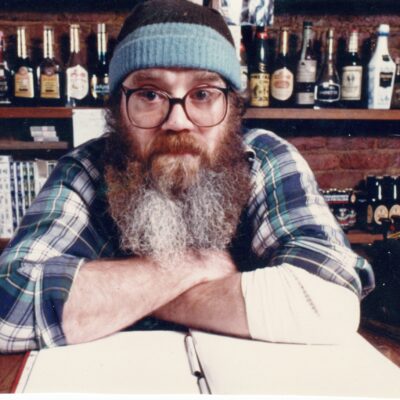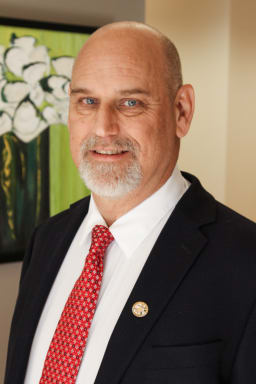The climate crisis is on our doorstep, but it’s not all doom and gloom. Area environmental leaders are optimistic about our community’s ability to tackle the problems of today, and hopeful that the next generation will take up the cause as well. For this year’s Power Issue, we spoke with nine people across industries, from organizations big and small, to learn what they’re doing to make Charlottesville a model for cities around the world.
The Unifier
Susan Kruse
Executive Director | Community Climate Collaborative
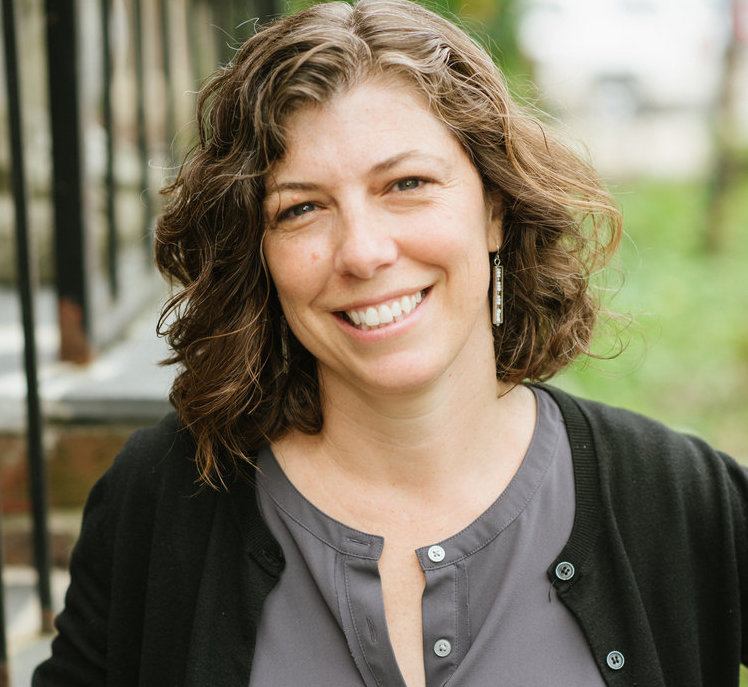
Charlottesville is on the clock: The city’s Climate Action Plan hinges on a mandate to slice our greenhouse gas emissions nearly in half by 2030, and reach carbon neutrality by 2050. It seems daunting, but Susan Kruse, executive director of the Community Climate Collaborative, thinks that a united Charlottesville can achieve that goal—and create a better city in the process.
“Climate is connected to everything,” says Kruse, who has been working to protect the environment and fight for climate justice for nearly 30 years. Equity and the environment are entangled, she explains. Without affordable housing, for instance, “we create systems that create car dependencies and push people away from cities.”
“That’s a justice issue,” says Kruse. “That’s a climate issue.”
But the executive director of C3 is optimistic that Charlottesville can not only achieve its own climate goals, but serve as a model for other cities in Virginia, where most residents live in urban and suburban communities. And she’s willing to unite with unlikely partners, like local petroleum supplier Tiger Fuel, to realize that common goal.
“A lot of environmental groups would not work with a fuel company,” says Kruse. “If we’re looking at climate as math, they have to cut their emissions in half just like I do. So, if they’re willing to do that work, then let’s step forward.”
As C3 looks to expand its work into Richmond, Kruse recognizes that many of the climate justice challenges Charlottesville faces are shared by the capital of the commonwealth. But she trusts that broad support for change is there.
“People really want to do the right thing across the board, but most people don’t know where to start, and that is where we come in,” says Kruse. “That is where we can be helpful.”
The Collector
Sarah Sweet
Founder | The Scrappy Elephant

Nothing goes to waste at The Scrappy Elephant. Sarah Sweet’s creative reuse center collects used arts and crafts supplies to keep them out of landfills, and sells them to the community at as low a cost as possible to ensure more people can afford to make art.
“I’m a former art teacher and an artist myself,” says Sweet, “so I know how healing art is for the soul. And we’re all very stressed right now.”
In May, Sweet’s shop took in more than 5,000 pounds of items. The Scrappy Elephant has accepted all sorts of supplies, including some bulkier machinery like sewing machines and a printing press, giving them a chance at a new life on the sales floor or in the shop’s rentable studio space.
“I’ve always been very conscientious about the environment,” says Sweet, who credits the birth of her daughter as a point of inspiration. “Having her kind of turned that whole climate change thing into, ‘This is scary, and I’m bringing a human into this, and what kind of future is she going to have?’”
But it was a trip to Nashville that sparked the idea for a store. There, she read an article about a creative reuse center—the first time she’d heard the term—and became “obsessed” with the idea. She drove to every creative reuse center she could find, even calling ones that were out of the way, to learn how to make one of her own. And with the Community Investment Collaborative, a 16-week program on how to start a small business, she was able to learn how to make her idea a reality. She first tested a pop-up location in the summer of 2020, which turned out to be the perfect timing.
“Honestly, during COVID, a lot of people took up crafting because they were stuck at home,” she says. “And then a lot of people were purging their home to make space for home offices, so it kind of aligned.”
What’s next? Sweet hopes to eventually create a space where artists can sell their artwork.
The Mender
Gabriela Romo
Founder | Refemme
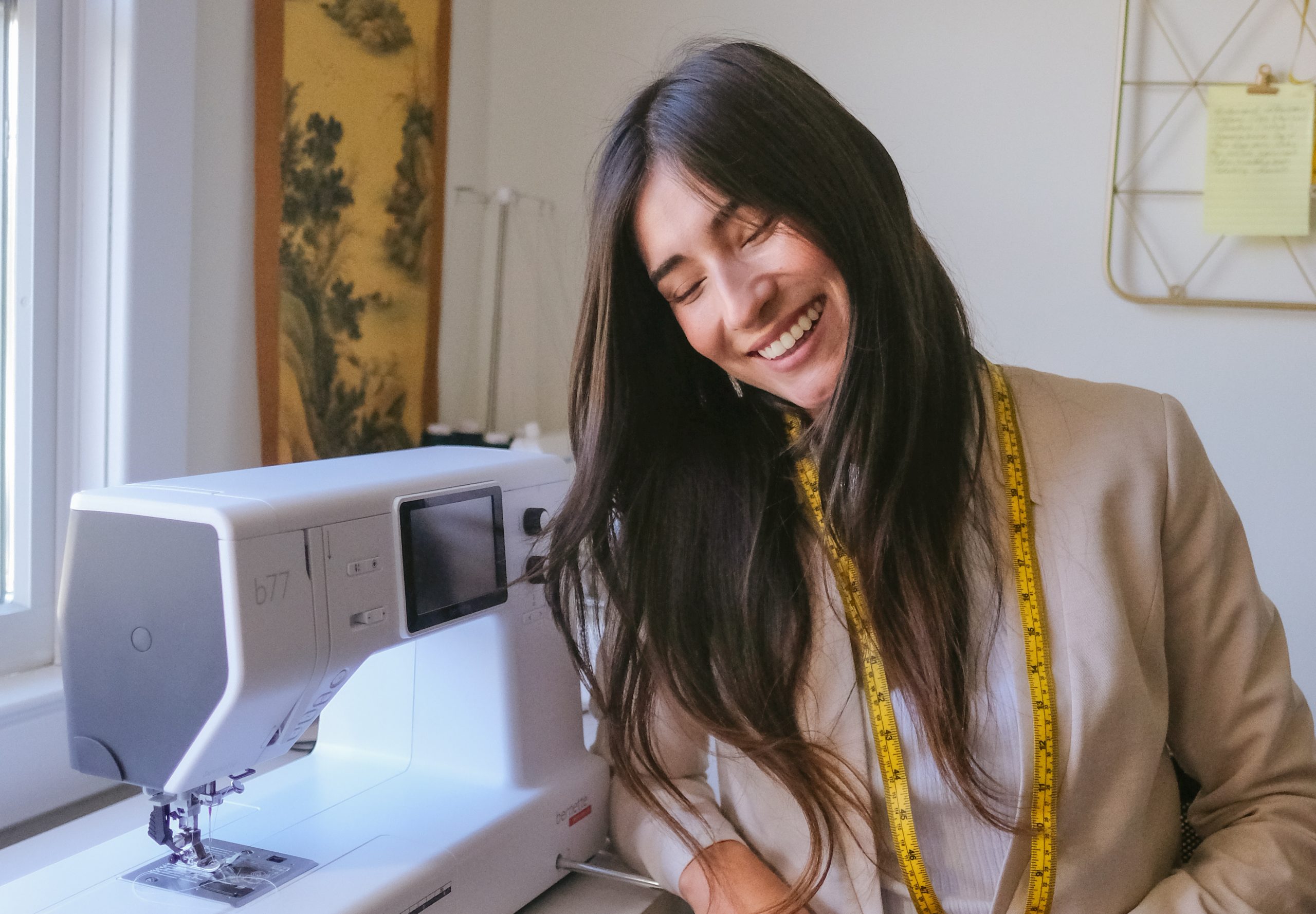
When Gabriela Romo won the $10,000 top prize at the Piedmont Pitch Night this spring, capping off a 10-week program with more than 70 entrepreneurs, she knew it was just the beginning of a long journey.
“Now I feel like the real work is coming,” she says.
Romo won with her idea for Refemme, what she calls a “circular business” that combats the world’s fast fashion predicament by trying to “change the linear model of take, make, and waste, to take, make, reuse, repair, repurpose.” At Refemme, anyone can get their clothing mended—or even learn how to do the job themselves through mending workshops. With so much textile waste, Romo hopes that her business will encourage people to extend the life of their clothes and keep repairable items and reusable garments out of the trash bin.
Romo was inspired by her time spent working in a thrift store when she first arrived in Charlottesville. There, she noticed how many almost-new items of clothing were being donated, or just clothing missing a single button. And not everything donated even made it to the sales floor. “I just realized that people did not know how to take care of those small flaws,” she says.
With the influx of cash she won this year, Romo decided that building a storefront isn’t “the smart thing to do” for her business right now. Instead, she’s developed an idea for a mending drop-off system: a parcel box to drop off clothes to be mended, where customers can pick them up one week later. She plans to launch that initiative in the fall, in partnership with Darling x Dashing, The Scrappy Elephant, and Bluebird & Co.
“I have reworked close to 300 garments at this point, that have saved almost 100,000 liters of water,” she says, adding that a 10-minute stitch makes a huge difference, and makes her feel helpful. “I’m just providing a solution for a community that really craves it.”
The Tree Steward
Kathy Nepote
Project Committee Chair | Charlottesville Area Tree Stewards
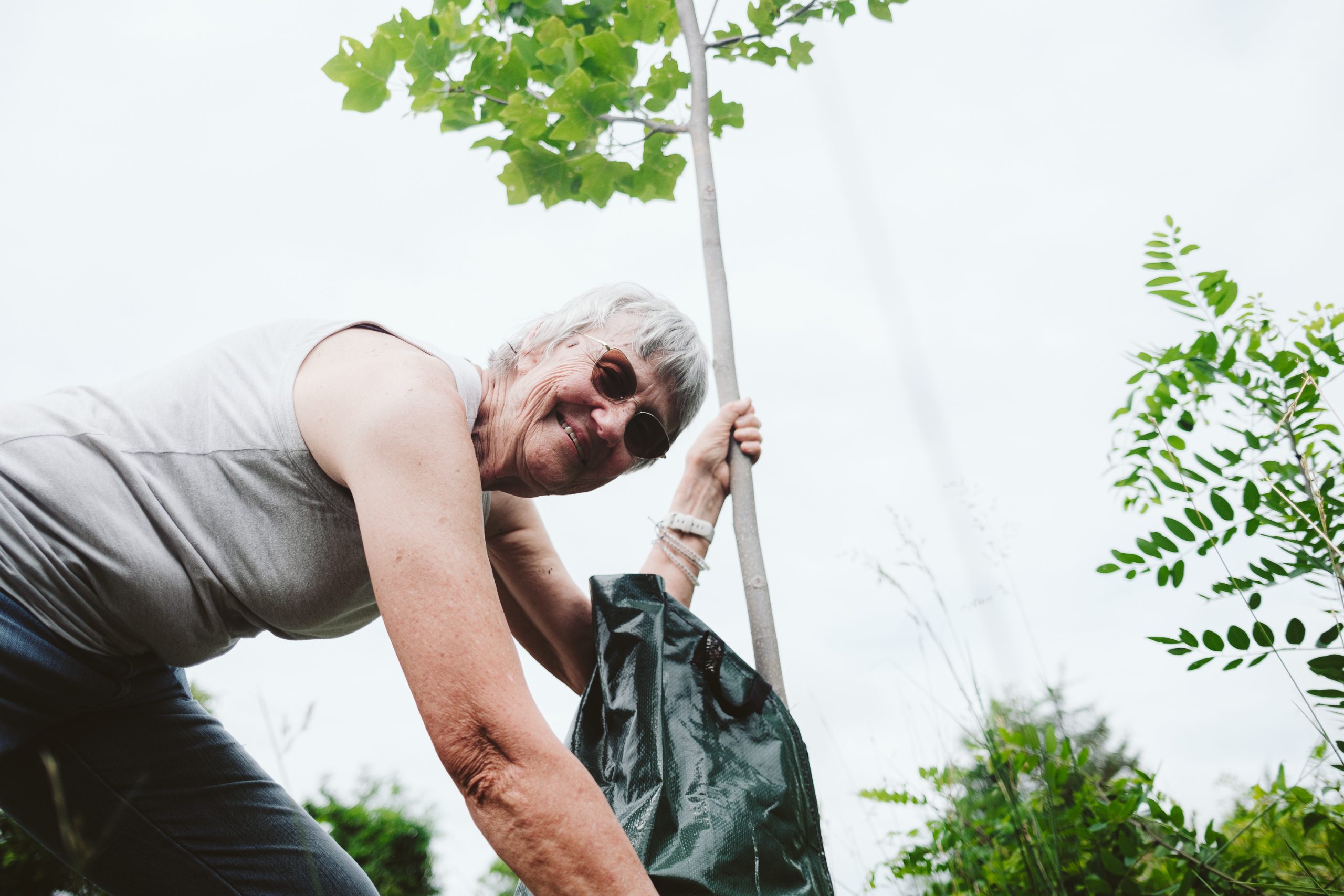
Kathy Nepote is a veterinarian who grew up on a farm. She knows crops, she knows animals—but when she moved to Charlottesville in 2016, she “knew squat about trees.”
So she took a course with the Charlottesville Area Tree Stewards and fell in love with the community. Now, she’s the project committee chair for CATS, where she helps to identify which sites the organization will work at and what work it’ll do. Recommendations for projects can come from the city, the county, or even from an individual CATS member, and can range from tree planting to invasive plant control.
Most recently, CATS planted 26 trees at Chris Greene Lake. And Nepote herself still gets out there to play her part.
“You get outside, you’re with your friends, you talk, and you do something that makes an impact,” she says.
Nepote says she does the work for a simple reason: She loves it, and it’s fun. But she knows that just planting trees isn’t enough. “Even more important is maintaining the tree canopy that we do have,” she says, as housing projects threaten to clear out large swaths of foliage. To that end, CATS is also an advocacy and awareness group that has written letters to halt disruptive construction projects.
But CATS relies on public and community partnerships to get the approval and assistance it needs to improve the city’s natural environment. From the City of Charlottesville, to the Tree Commission and the County of Albemarle, none of what CATS does would be possible without their help, says Nepote.
“We’re very fortunate to have very dedicated people. There’s people in Charlottesville who really do care about the environment,” she says. “So you have a great pool of people to pull from to get stuff done.”
The Green Attorney
Nate Benforado
Senior Attorney | Southern Environmental Law Center
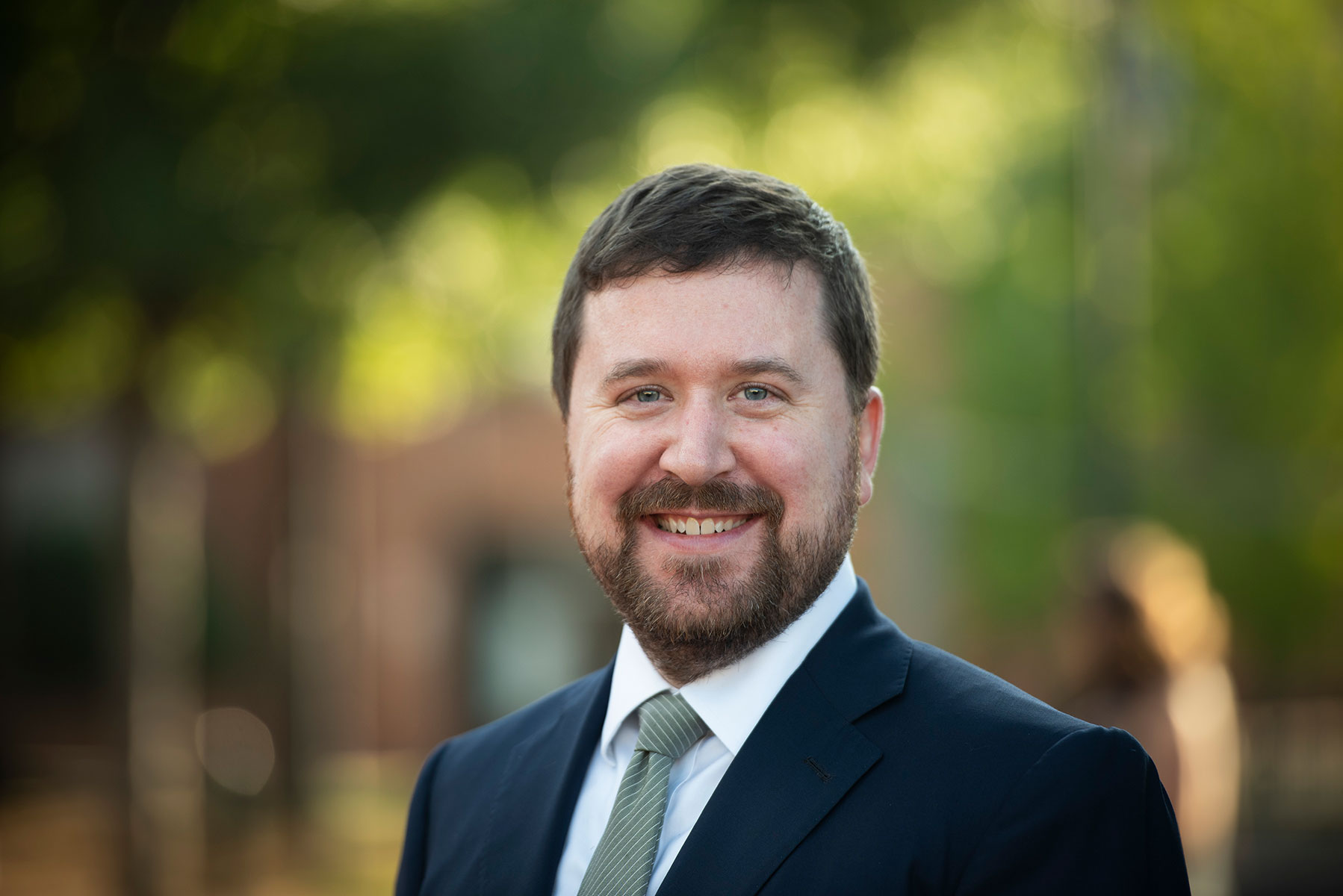
Environmental work is in Nate Benforado’s blood. His father worked at the EPA for more than 30 years, and growing up his family took regular camping trips to Shenandoah. So, when Benforado, an attorney and UVA alum, moved back to Charlottesville after spending years in private practice, he was driven to make a difference. Now, as a senior attorney at the Southern Environmental Law Center, he feels like he’s using his power for good.
“I had a light-bulb moment,” he says. “I could take the career skills I have—going to court, persuading people you’re right—and actually use them for something I care about.”
Benforado considers the Charlottesville-based SELC to be a “powerhouse” in the Southeast, with more than 100 attorneys across six states and hundreds of staff members. As senior attorney, Benforado has personally led the SELC’s work on the Regional Greenhouse Gas Initiative, a market-based mechanism that requires pollution producers to “buy” emissions allowances. Virginia was the first Southern state to join RGGI, thanks in no small part to Benforado’s years of work in the General Assembly trying to get it passed.
“We are a law firm, first and foremost,” says Benforado. “But we have so many tools to use. The lawsuit is always there, but we can be more creative with how we achieve progress.”
Recent efforts by state Republicans and Gov. Glenn Youngkin to withdraw from RGGI have pushed Benforado to jump back into the fight. But that doesn’t mean that he sees opposing forces as adversarial.
“We never sacrifice our mission, but we are very pragmatic in making progress,” he says. “So we are gonna work with anybody who we think can help us, and we will always try to find some common ground.”
The Gardener
Richard Morris
Co-executive Director | Cultivate Charlottesville
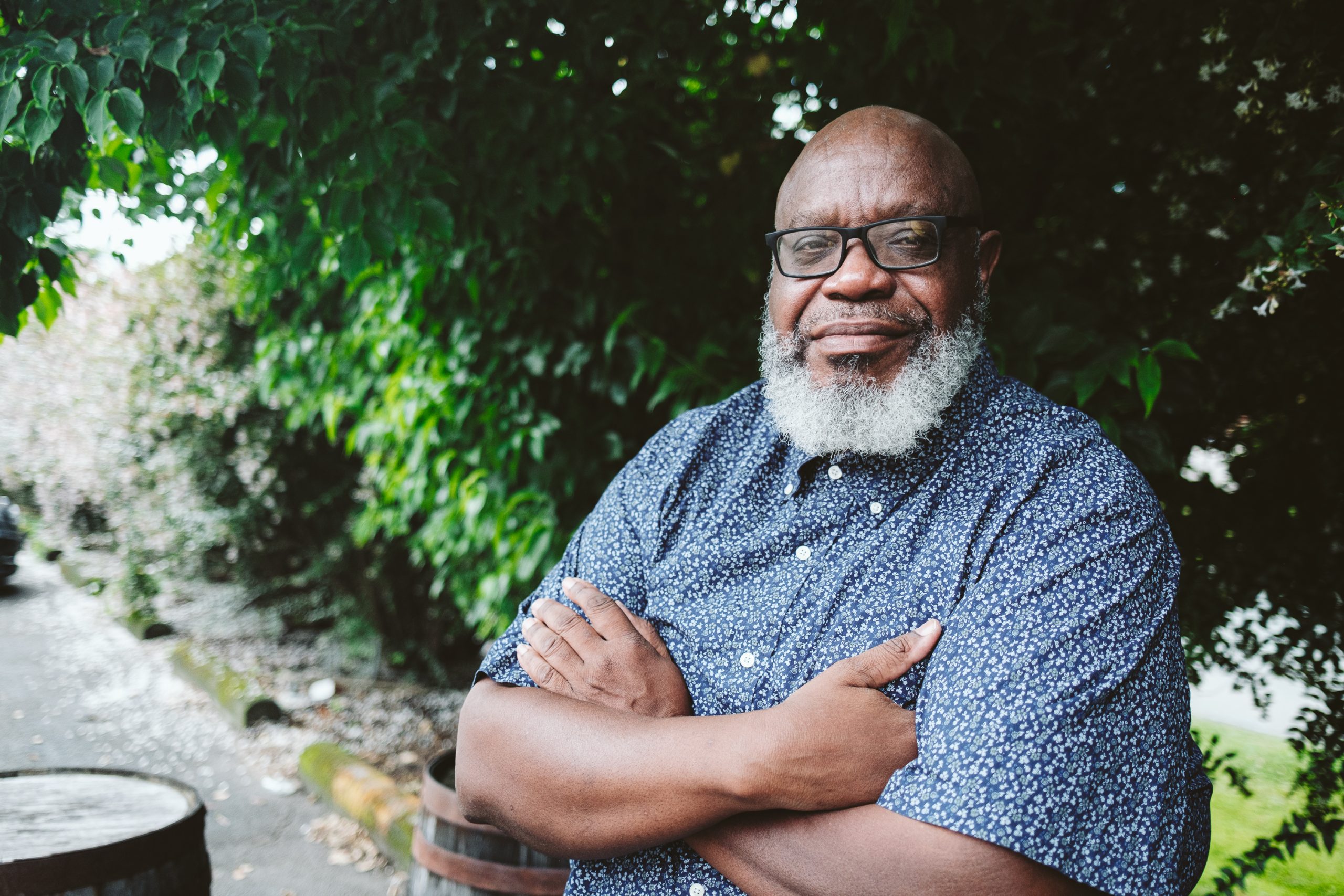
“We believe that food is a human right,” says Richard Morris, co-executive director of Cultivate Charlottesville. That is the organization’s guiding philosophy, which Morris hopes the community will embrace. But he also wants to shore up support for the people who grow and harvest food in the community, as well as the idea that everyone deserves good food.
“[Charlottesville] is known as a foodie town,” he says. “But there’s also a lot of hunger here in Charlottesville. It’s not for lack of resources; Charlottesville has the resources to be a foodie town for all people.”
Morris’ mother was an “Alabama farm girl,” he says. Growing up in a Black working-class neighborhood in Phoenix, Arizona, they always had a garden in the backyard. So, if someone ran short of food, his family’s home garden was ripe for the picking. “In that sense,” he says, “our garden was a community garden.”
Morris has worked as a graphic and software designer and developer across many different industries, from health care to aerospace, and through it all he’s always kept a garden of some sort. Working with Cultivate the last five years has felt like “coming full circle,” he says.
Though Morris is bidding farewell to the organization to pursue personal goals, studio art, and his own garden, he remains inspired by the next generation. Cultivate’s work with youth, through opportunities like an intern program where kids get to work in the gardens, and develop their leadership skills and cooperative skills, has allowed Morris to see how much energy and passion is waiting in the wings in Charlottesville.
“You plant a tree, and maybe you won’t be able to sit in the shade of that tree, but the next generation will,” he says. “And so that’s my goal.”
The Navigator
Emily Irvine
Climate Protection Program Manager | City of Charlottesville
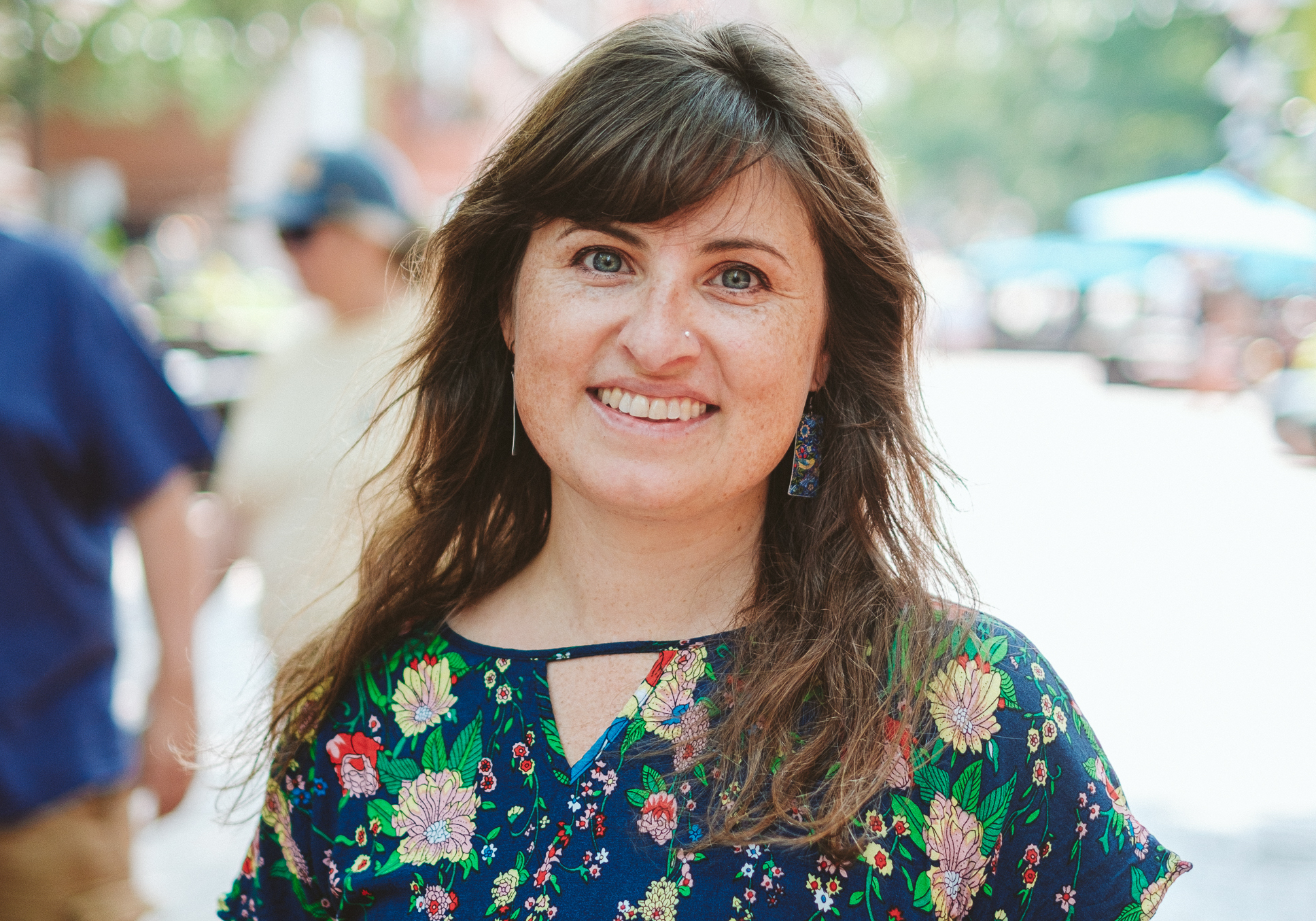
When it comes to achieving the city’s climate goals, Emily Irvine sees a future of grand possibility on the horizon. And as Charlottesville’s climate protection program manager, she’s devoted to getting all of us pointed in the same direction, envisioning the same picture of what a climate-ready city looks like.
The path forward for every person, organization, or business might be a little different, but part of Irvine’s job is to build relationships in the community and help everyone figure out how to journey down their individual path toward that big bright future.
“I like to say climate change is a collective action problem,” says Irvine. “So, it will take all of us. I really feel like there is transformative change potential in this work, and that is something that also makes it feel exciting and dynamic, and also hard.”
Irvine’s path to her current role was shaped, in part, by a different global crisis: the COVID-19 pandemic, which pushed her to leave her job of nearly 15 years to care for her two school-aged children.
“Many women left their jobs at that time and I was among them,” she says. “Having that career break really gave me the opportunity to think critically about what I really wanted to be doing, and it gave me the opportunity to go back to school.”
Returning to school for a master’s in natural resources, with a focus on leadership for sustainability, put her on her own path toward tackling climate change full-time. Now, with the Climate Action Plan approved in January and so much federal investment in climate action, Irvine believes there’s never been a more exciting time to be involved.
“I get to get up every morning and do what I’m pretty obsessed with doing,” she says with a laugh. “Which is pretty wonderful.”
The Overseer
Andrea Trimble
Sustainability Director | UVA’s Office for Sustainability
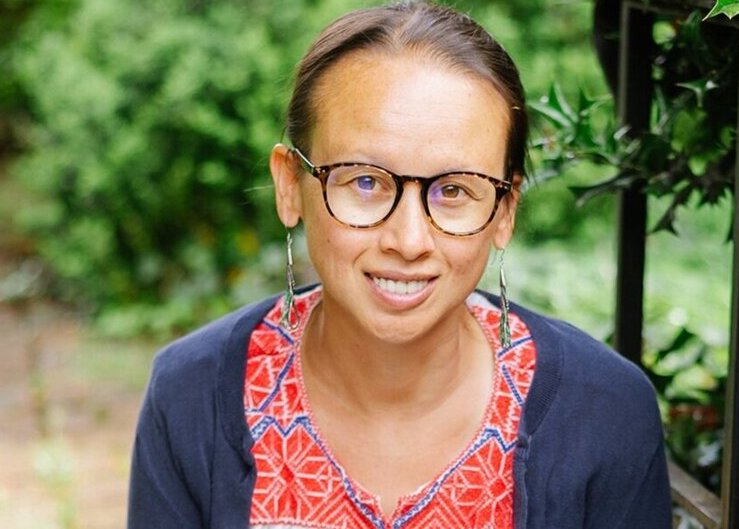
Andrea Trimble is the director of the Office for Sustainability at the University of Virginia, where she oversees various programs and initiatives that push the university toward its 2030 sustainability goals. That means she works in a wide variety of areas—from energy and waste to water—and with a broad range of people—students, staff, faculty, alumni, and more—to craft strategic plans and spur individual action.
It’s a far cry from when she started working in sustainability in higher education 17 years ago at Harvard. “Back in 2006,” says Trimble, “the idea of a ‘sustainable campus’ was very new.” But because she was once part of a team that had to advocate for aspects of campus sustainability that are common today, she learned a lot about managing change across a large organization, and creating a blueprint for other schools to follow. The incredible progress that has been made in the sustainability space since, and the support of UVA and Charlottesville, gives her hope for the future.
For Trimble, her work has always been driven by an appreciation for a community’s relationship with the natural world. Watching her hometown expand, seeing the loss of trees and a reliance on cars as new neighborhoods were developed, drove her to pursue an undergraduate degree in architecture and historic preservation.
But sustainability has also influenced her artistic work. Trimble’s place-based ink line drawings with watercolor examine how local communities are affected by the impacts of climate change—such as wildfires, sea level rise, and extreme heat.
“Drawing is so much about a way of seeing,” she says, “pausing to closely and quietly observe the details in the world around us, but also making connections to larger concepts. A lot of sustainability work is about paying attention to what is happening around us, understanding context and connections, and taking action—often creatively.”
The President
Mark Goodwin
President/CEO | Apex Clean Energy
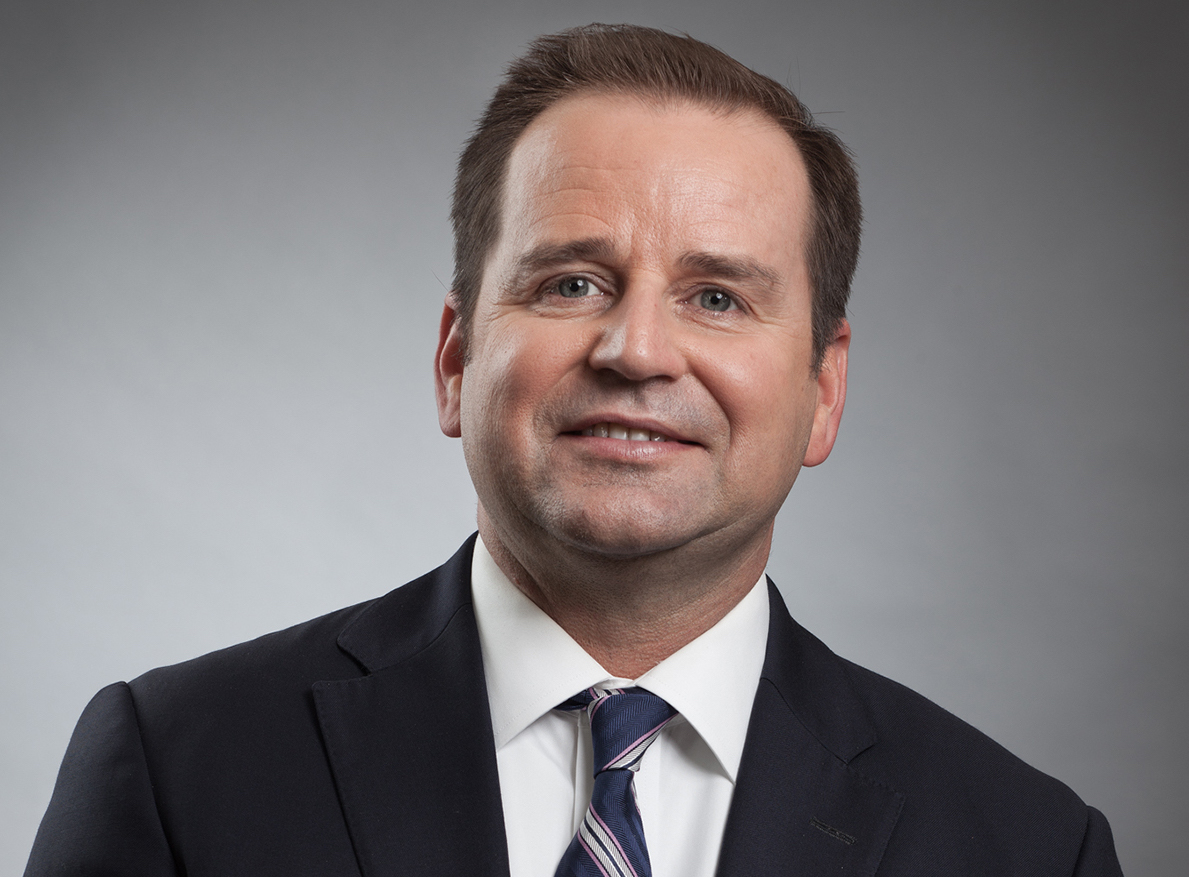
Mark Goodwin, president and CEO of Apex Clean Energy, believes in a holistic approach to sustainability and renewable energy. At Apex, employees are encouraged to shift to clean energy in their own lives through financial incentive programs for those who purchase electric vehicles, install solar panels at home, or avoid driving to work. Apex’s “mass-timber” headquarters is, naturally, made from green building materials and powered by solar energy.
Goodwin wants Apex to lead with their wind, solar, and storage facilities, energy resources, and green fuel tech—but he also wants Apex to lead by example.
“To make meaningful change, our entire community—from municipal governments to private citizens and organizations—must act on sustainability,” says Goodwin, who notes that Apex is a founding member of the Green Business Alliance, a coalition of Virginia companies that have collectively pledged to reduce their emissions by 45 percent by 2025.
But Goodwin also realizes that the fight against climate change is a multi-generational endeavor, and that preparing today’s youth to take up that responsibility should also be part of Apex’s mission. To that end, the company has developed an internship program open to applicants from across the country, offered tours of their headquarters, and designed an “experiential workshop” that introduces high schoolers to renewable energy. Apex has also launched new opportunities for HBCU students, such as a free, online course that highlights employment opportunities in the clean energy space, as well as the Ron Brown Scholar Program and the Affordable Housing Opportunity Fund.
“We’re focused on passing the baton to today’s youth—an inspired and engaged group that’s already proving stereotypes wrong,” says Goodwin. “Apex believes one of our roles in the energy transition is to inspire and equip this future workforce.”


